Project Intro
GoGlobal module at MSc & MA Innovation Design Engineering, Royal College of Art & Imperial College London
GoGlobal is an IDE project conducted overseas. The entire class of IDE class goes to Nairobi, Kenya for a 3-week project. Our group that consists of both IDE and Nairobi Design Institution (NDI) students aims to tackle waste management issues in local public schools.
KEYWORDS: Service Design; Waste Management; Education.
METHOD & TOOLS: Human-Centered Design; Low-cost Prototyping
DURATION: 3 weeks.
INSTITUTIONS:
COLLABORATION:
Design Brief
Your waste is your opportunity
At the beginning of this project, we tweaked the word “responsibility“ in the narrative to”opportunity”, a more active word. Because we want children think about “Waste management is something I want to do” rather than “Waste management is something I’m told to do.“
Field Research
Dandora High School
The School is situated adjacent to the dumpsite in Dandora, a low income area.
The School is situated adjacent to the dumpsite in Dandora, a low income area.
Kilimani Primary School
The School is in a middle income area, and children have high value personal possessions.
The School is in a middle income area, and children have high value personal possessions.
Kamongo Waste Paper Kenya Ltd
As experts in our field, having provided hassle-free office waste paper collection, recycling and recovery solutions for over 20 years, we can confidently offer affordable waste management services that are as good for you as they are for the environment.
Process: Collect — Transport — Sort — Sell
As experts in our field, having provided hassle-free office waste paper collection, recycling and recovery solutions for over 20 years, we can confidently offer affordable waste management services that are as good for you as they are for the environment.
Process: Collect — Transport — Sort — Sell
Insights & Concepts
Motivators
•In the beginning, students are motivated by the outcomes rather than an understanding of the waste management system.
• Students crave recognition and rewards on personal achievement and enjoy customising their possessions because they are proud of being a member of an honoured group. They desire to express their unique identities.
•In the beginning, students are motivated by the outcomes rather than an understanding of the waste management system.
• Students crave recognition and rewards on personal achievement and enjoy customising their possessions because they are proud of being a member of an honoured group. They desire to express their unique identities.
Education & Knowledge
• Students learn about macro-level environmental issues, but they don't know how to sort waste on a daily basis.
• Terminology about steps of managing waste (sorting, reusing, recycling) is vaguely used.
• Both schools lack visual communication to educate students' how to manage waste.
• Students learn about macro-level environmental issues, but they don't know how to sort waste on a daily basis.
• Terminology about steps of managing waste (sorting, reusing, recycling) is vaguely used.
• Both schools lack visual communication to educate students' how to manage waste.
Infrastructure
• Both schools lack facilities to support students' sorting education. Both
schools need funding to build new infrastructure.
• Tangible reward-based incentive concept may have pushback from school
administration that discourages distraction and uniqueness.
• Both schools lack facilities to support students' sorting education. Both
schools need funding to build new infrastructure.
• Tangible reward-based incentive concept may have pushback from school
administration that discourages distraction and uniqueness.
Attitude & Behavior
• Students in both schools like items that are made of recycle materials.
• Students value good character and morals.
• Students would like to behave well if they expect a reward in the future.
• How students value waste materials is strongly linked to their family financial situation, because poorer families have less room for superfluous objects.
• Students in both schools like items that are made of recycle materials.
• Students value good character and morals.
• Students would like to behave well if they expect a reward in the future.
• How students value waste materials is strongly linked to their family financial situation, because poorer families have less room for superfluous objects.
The Taka Store is a school engagement system that rewards students for bringing in waste addressing the students’ desire to be recognised for their effort. It bridges the knowledge gap in waste management the kids feel and educates them about sorting, recycling, and the value in waste.
Test
In order to develop the TAKA STORE system, we created 3 different reward systems and tested in Kilimani primary school and Dandora middle school. Through the experiments and interviews with teachers, we decided to go with both individual rewards and class rewards. The individual rewards will encourage each students’ motivation, and class rewards will provide group honours.
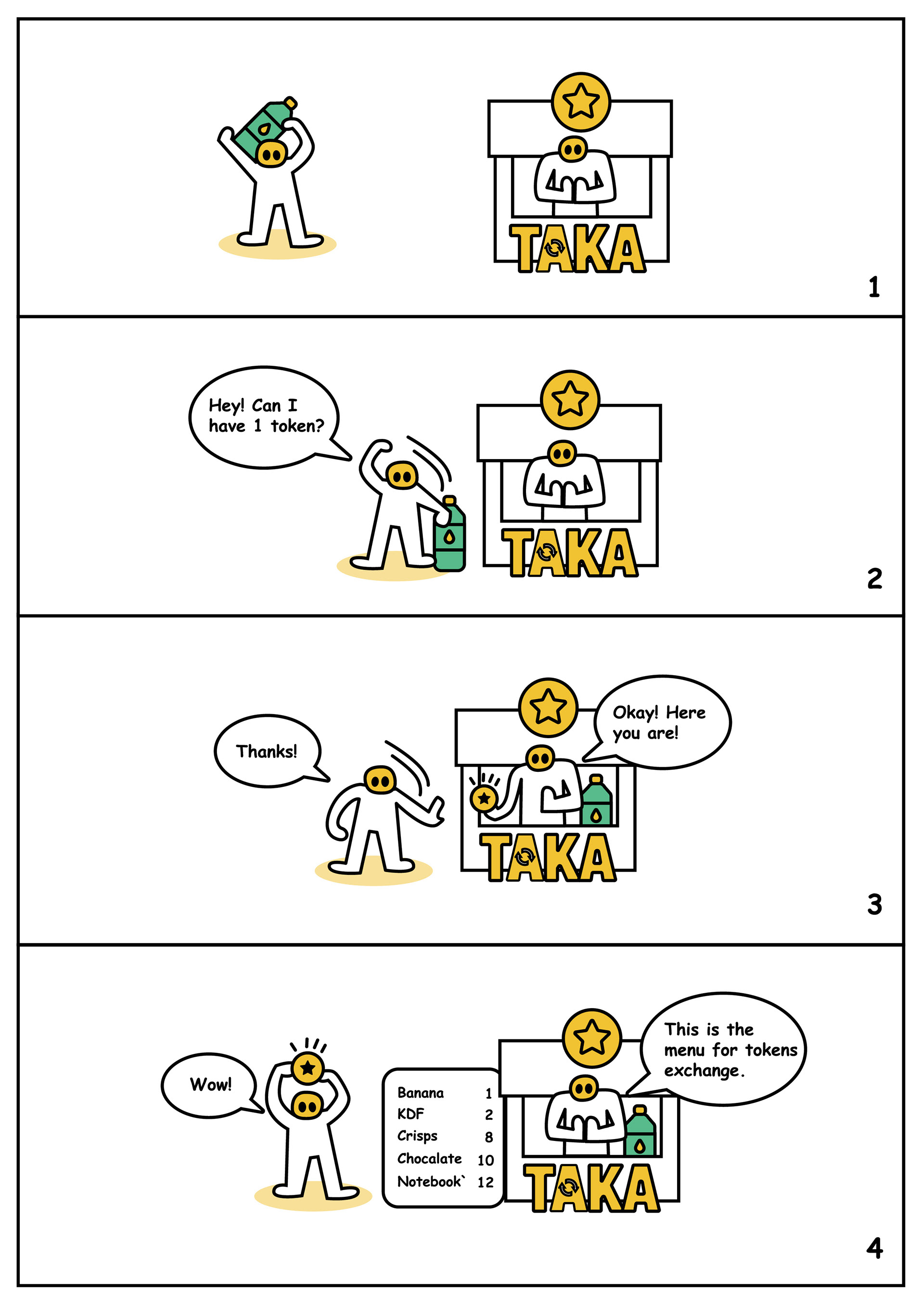
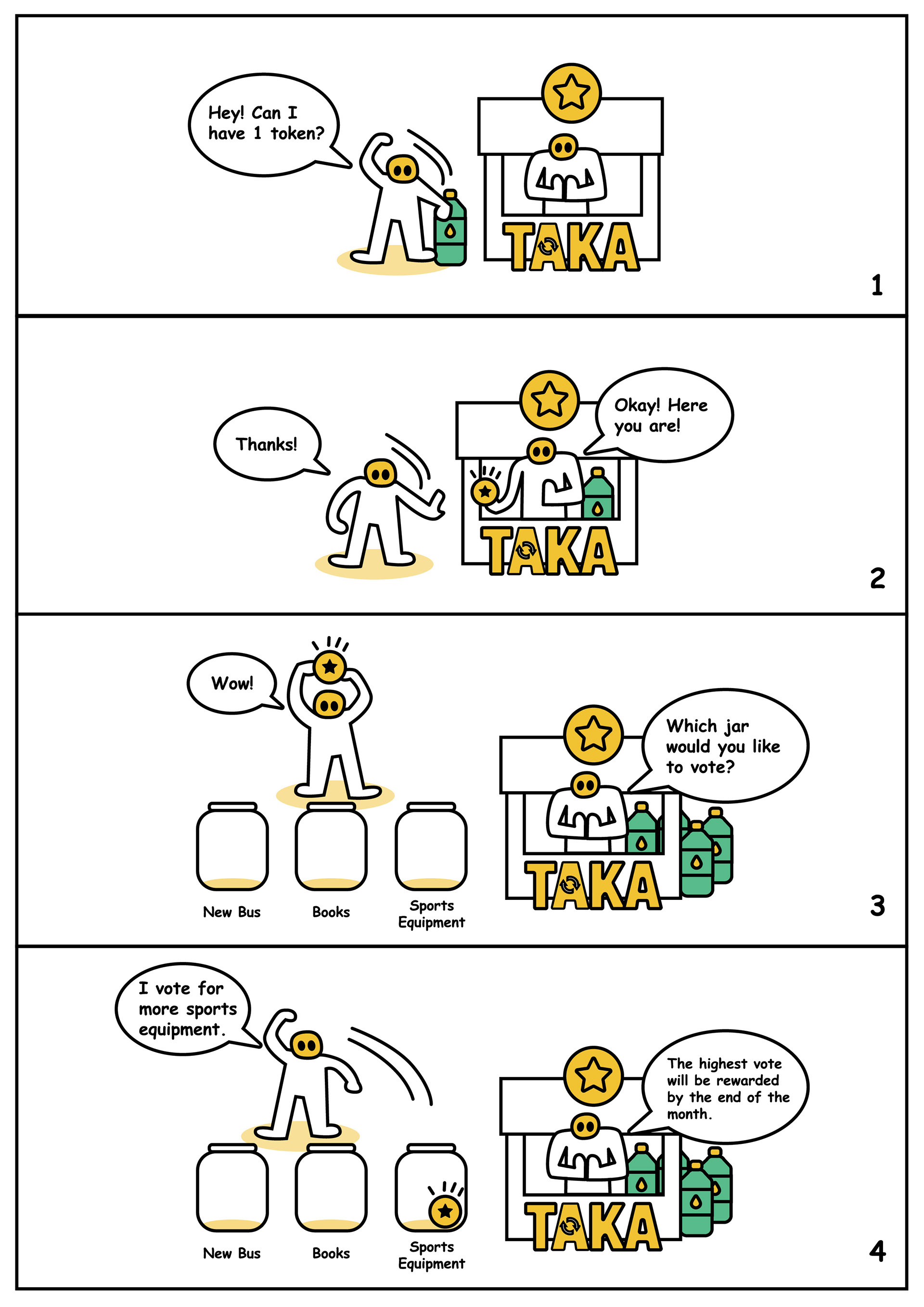
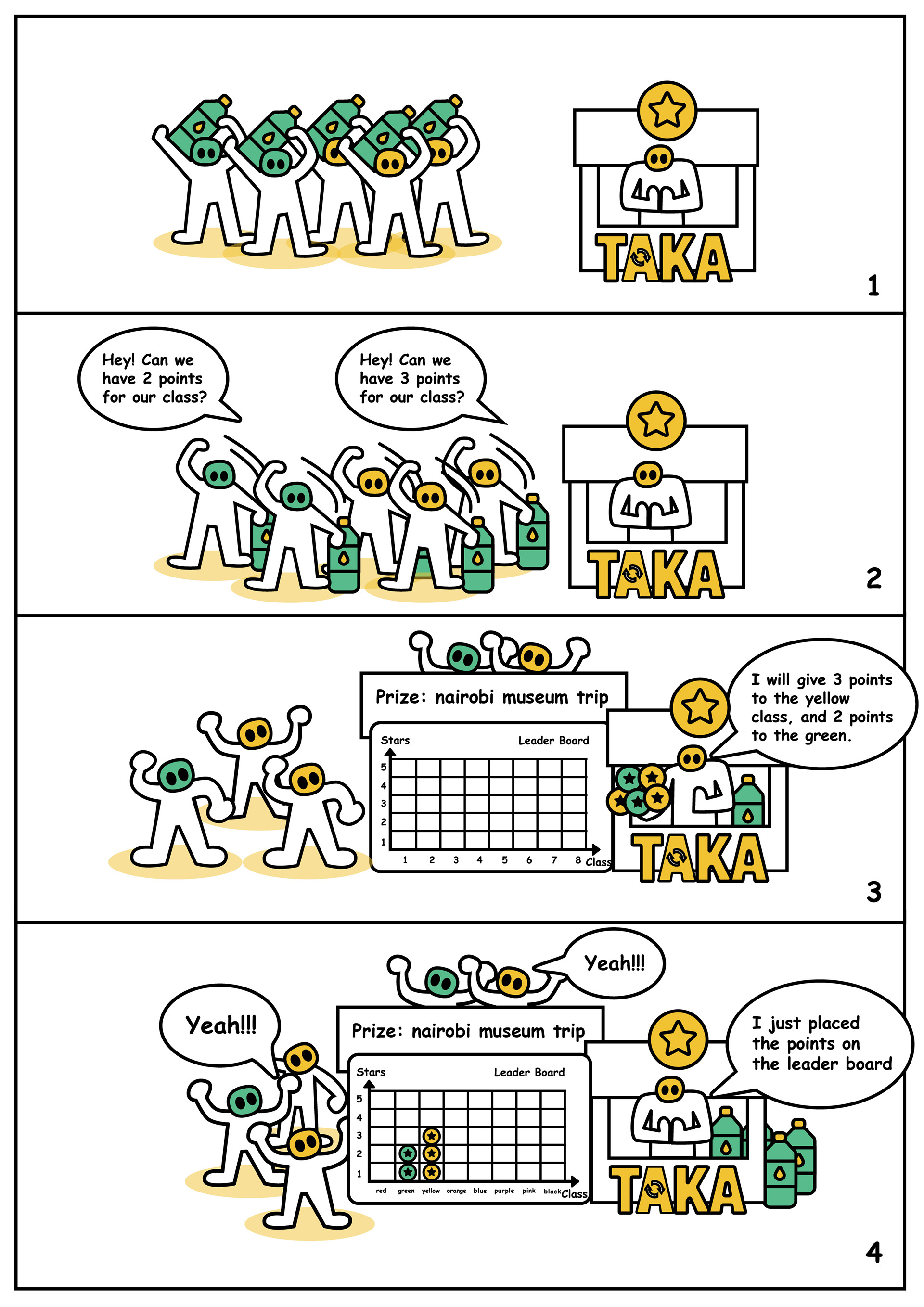
System Map
Prototyping
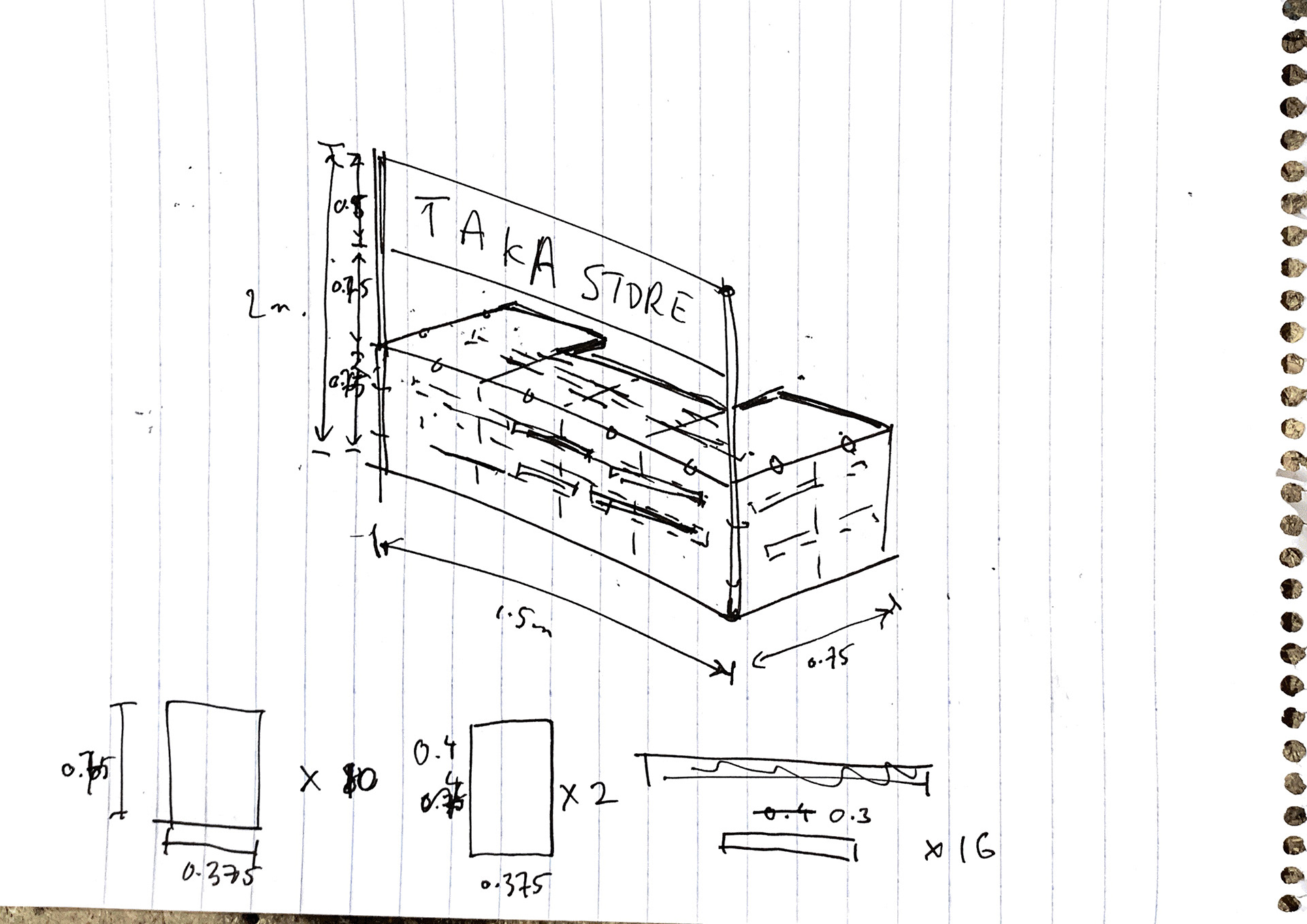



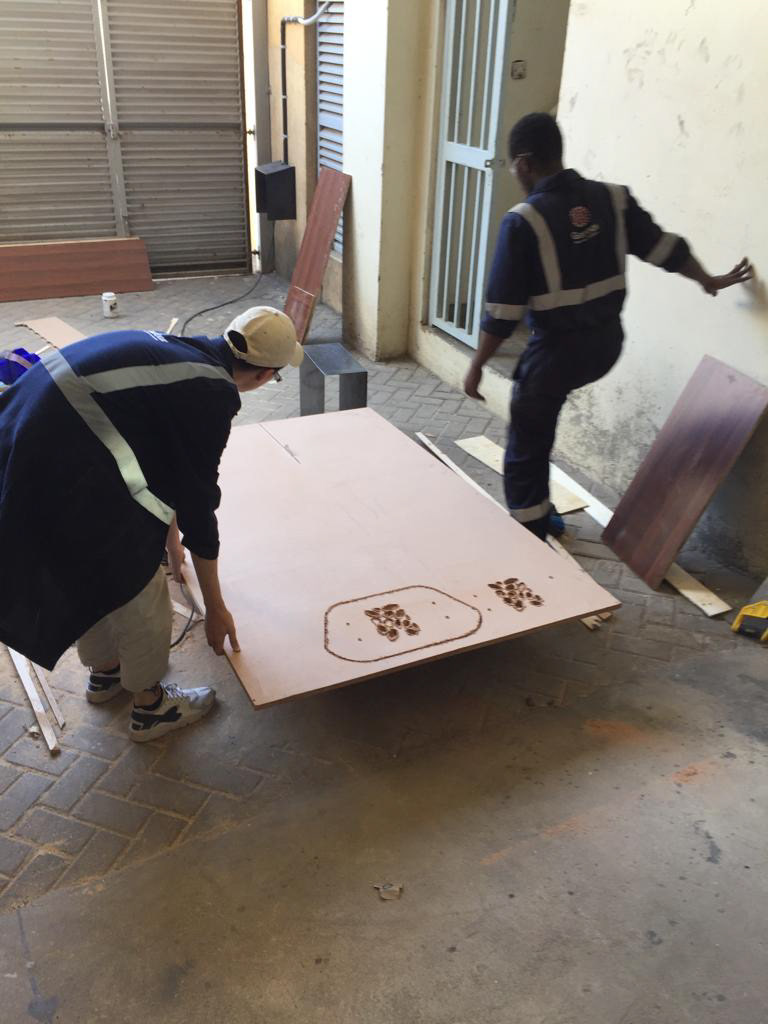

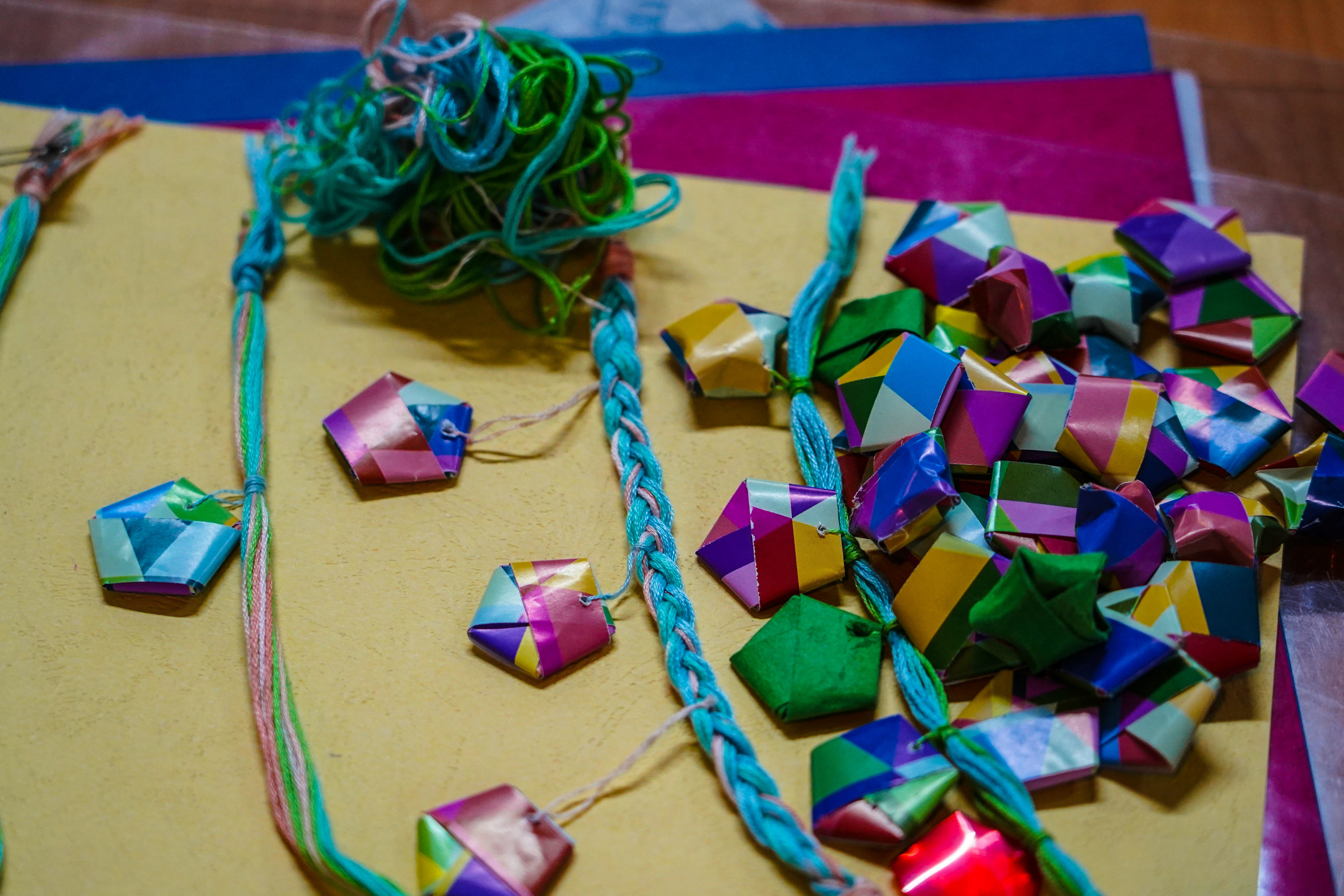
Final Design
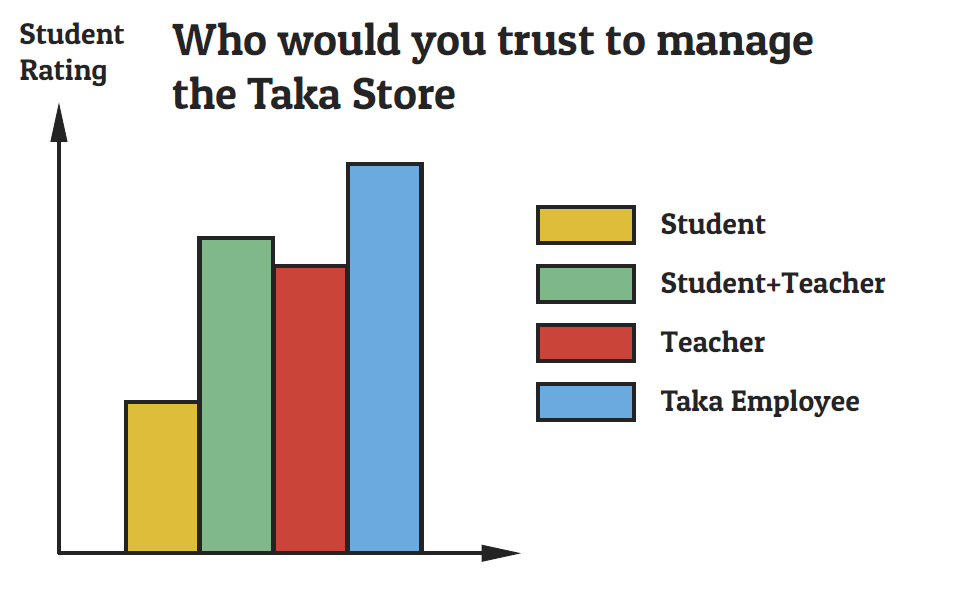
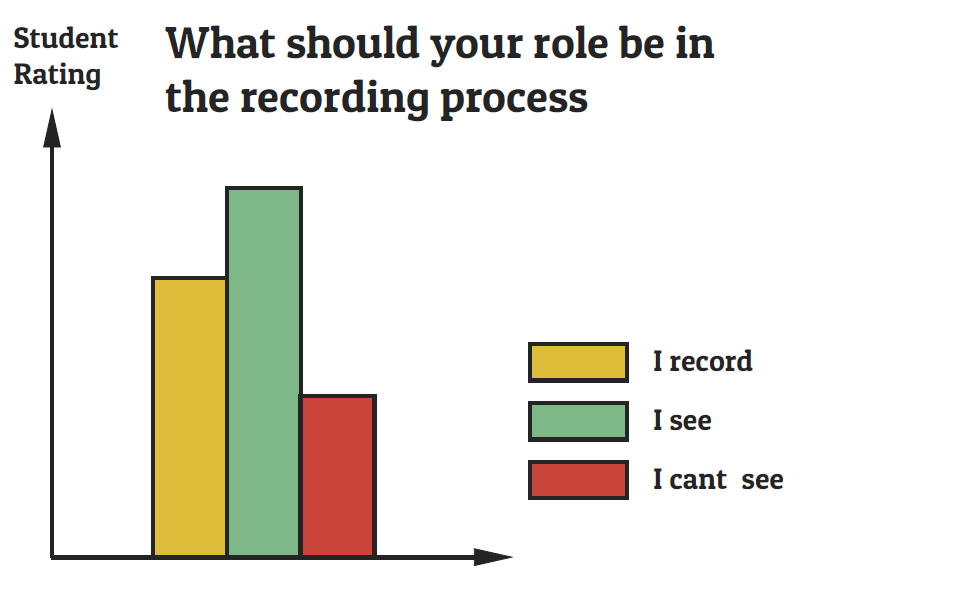
The team has been validating our Taka Store idea in both Kilimani Primary School and Dandora High School. We tested who the best person should be the manager of the Taka Store in three scenarios——a student manager, a teacher manager, and an external manager.
Validation
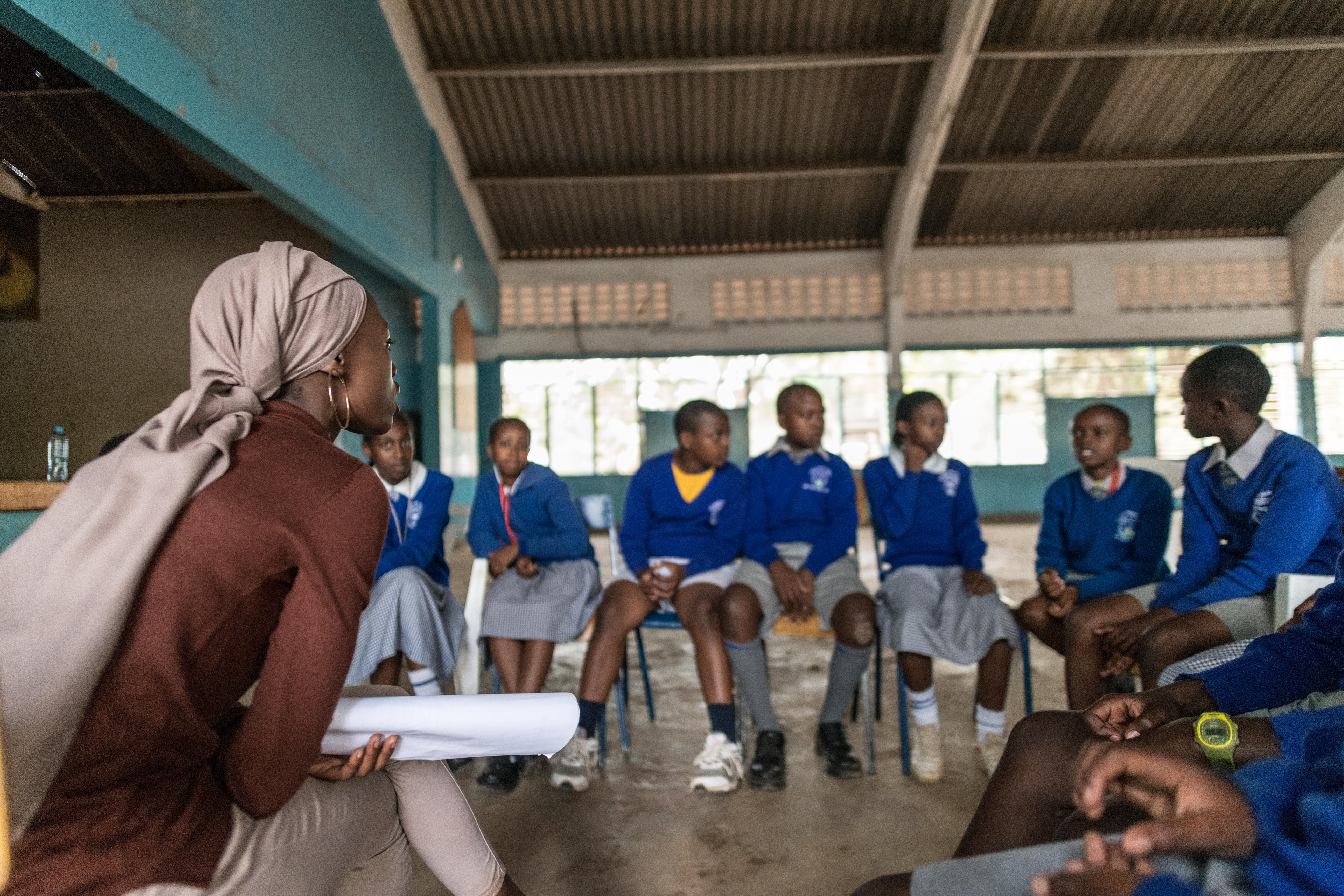
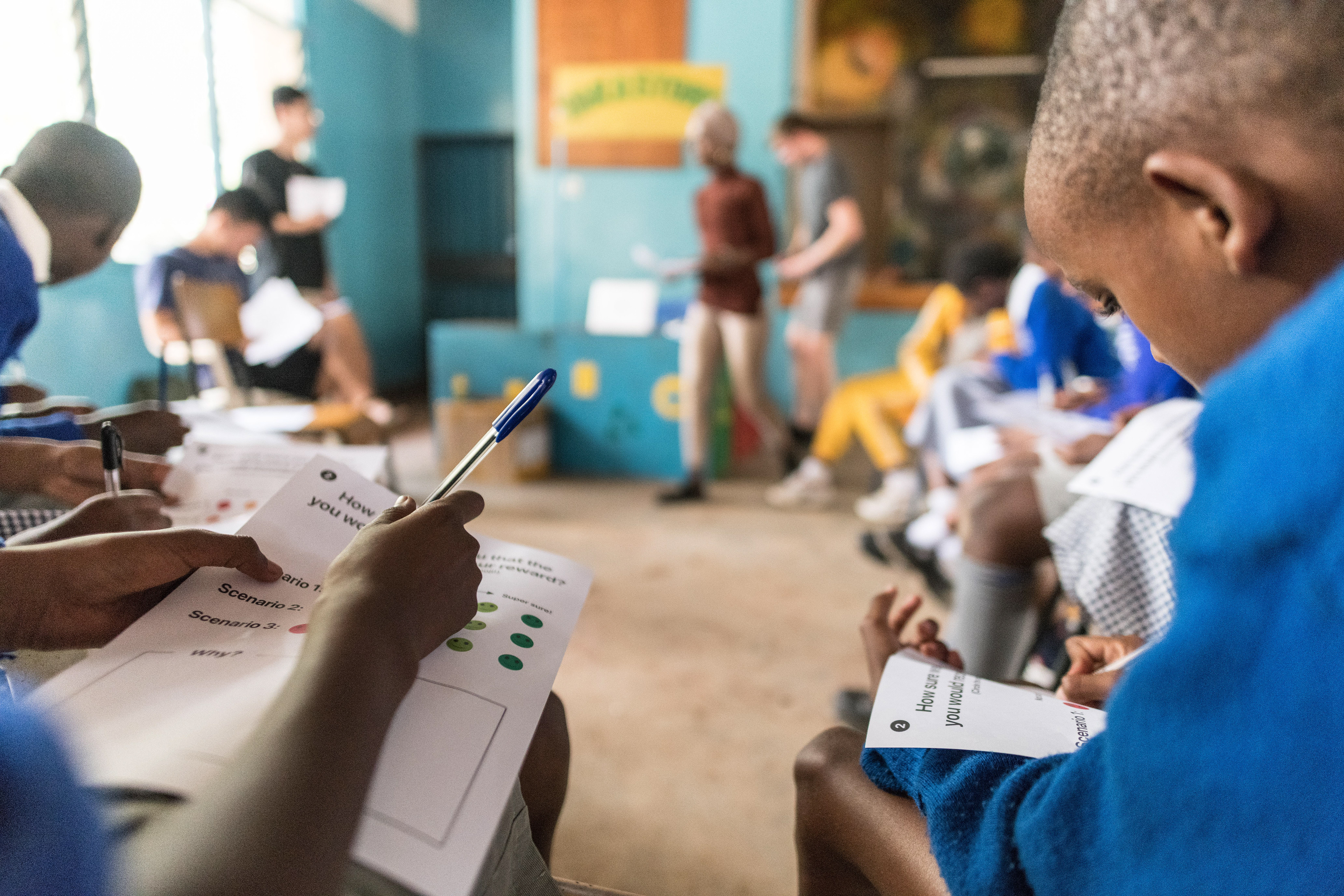

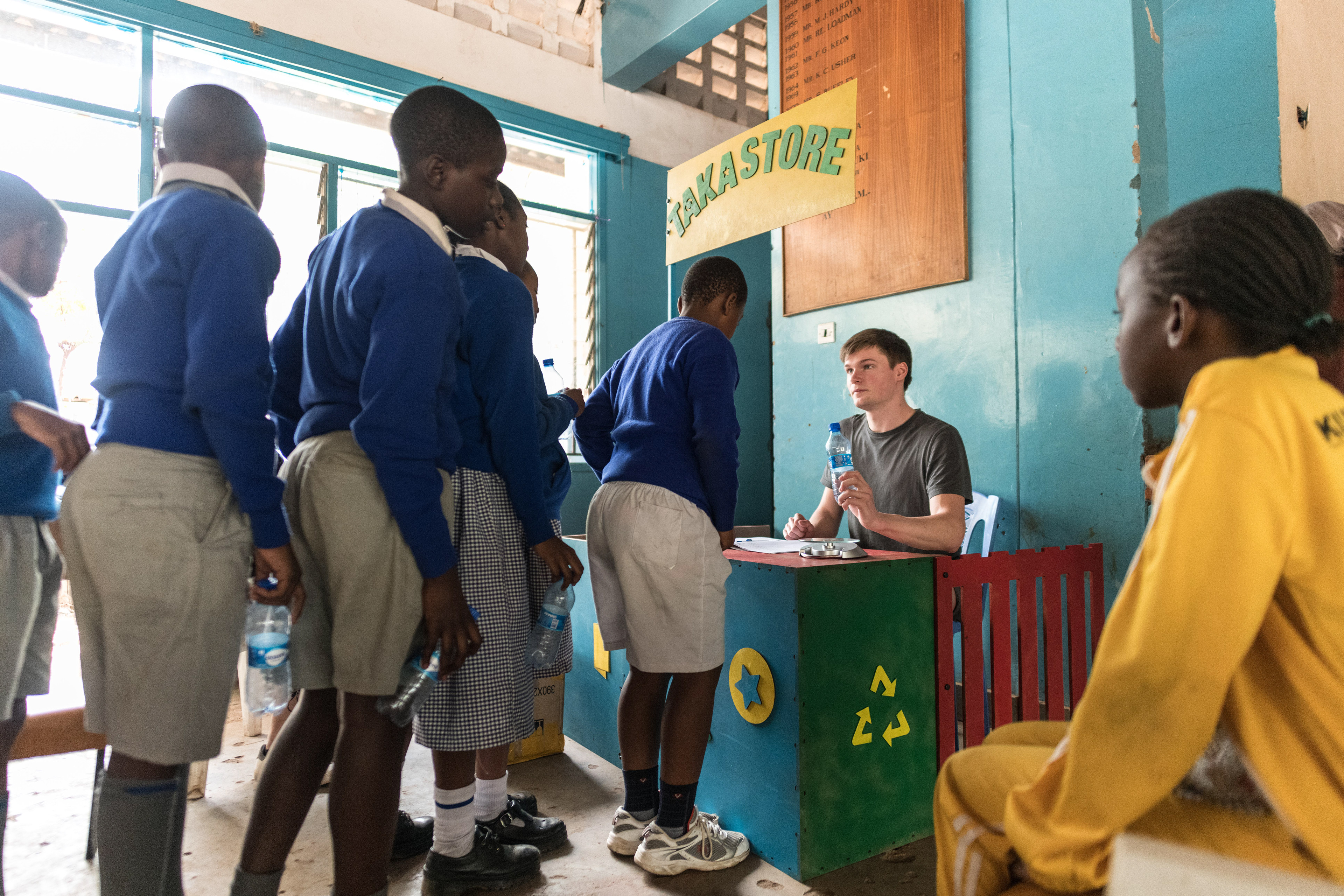
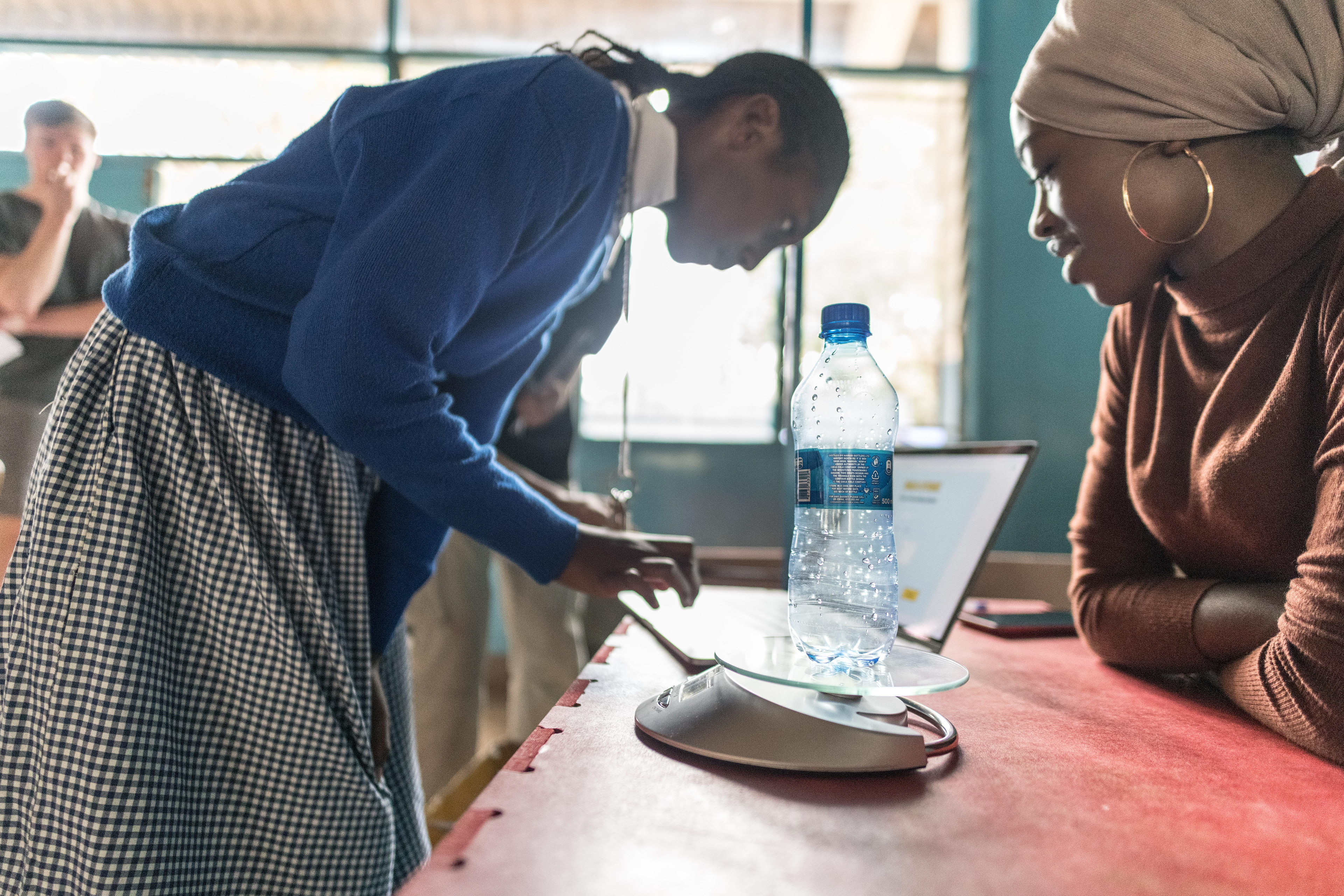

Exhibition & Presentation
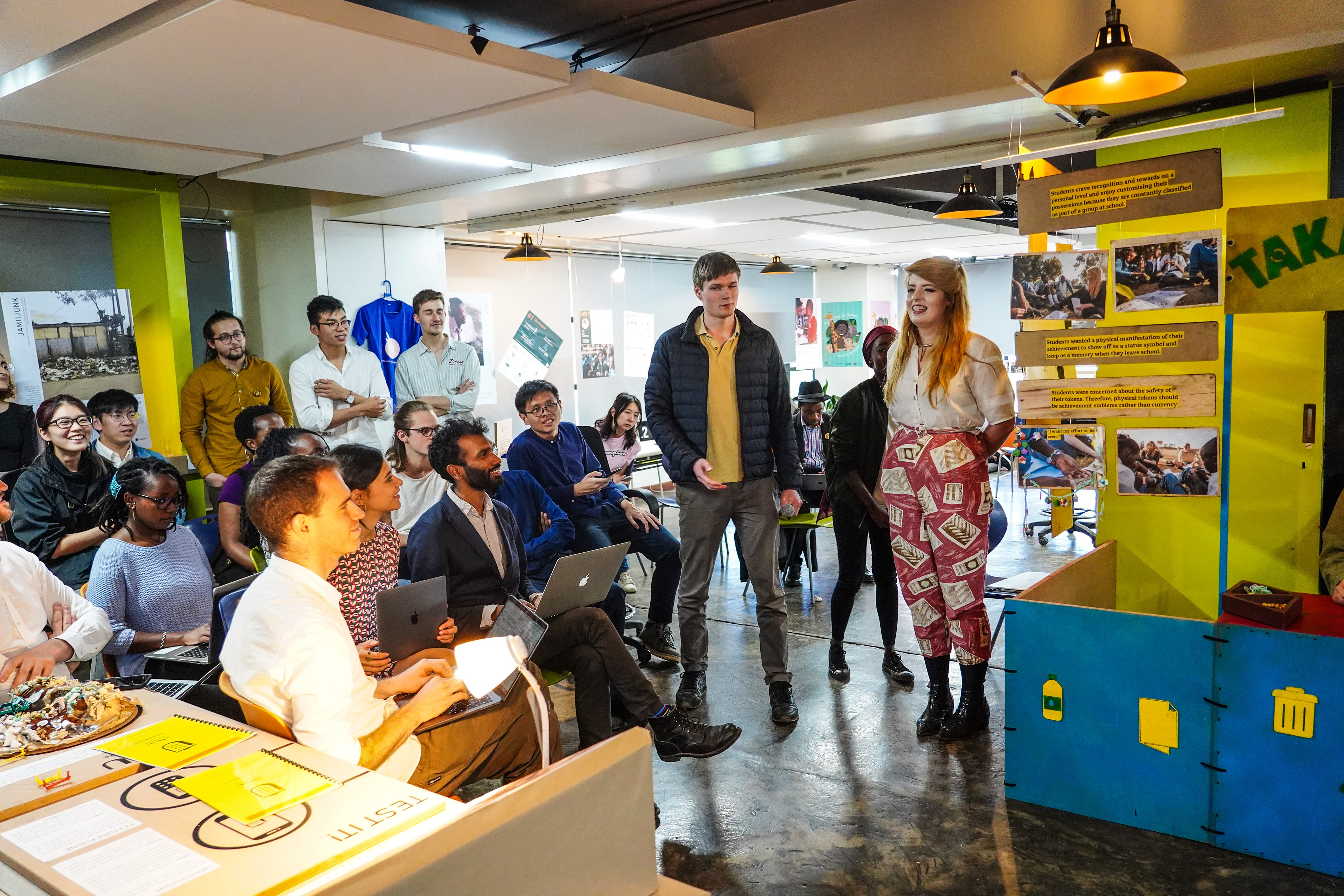
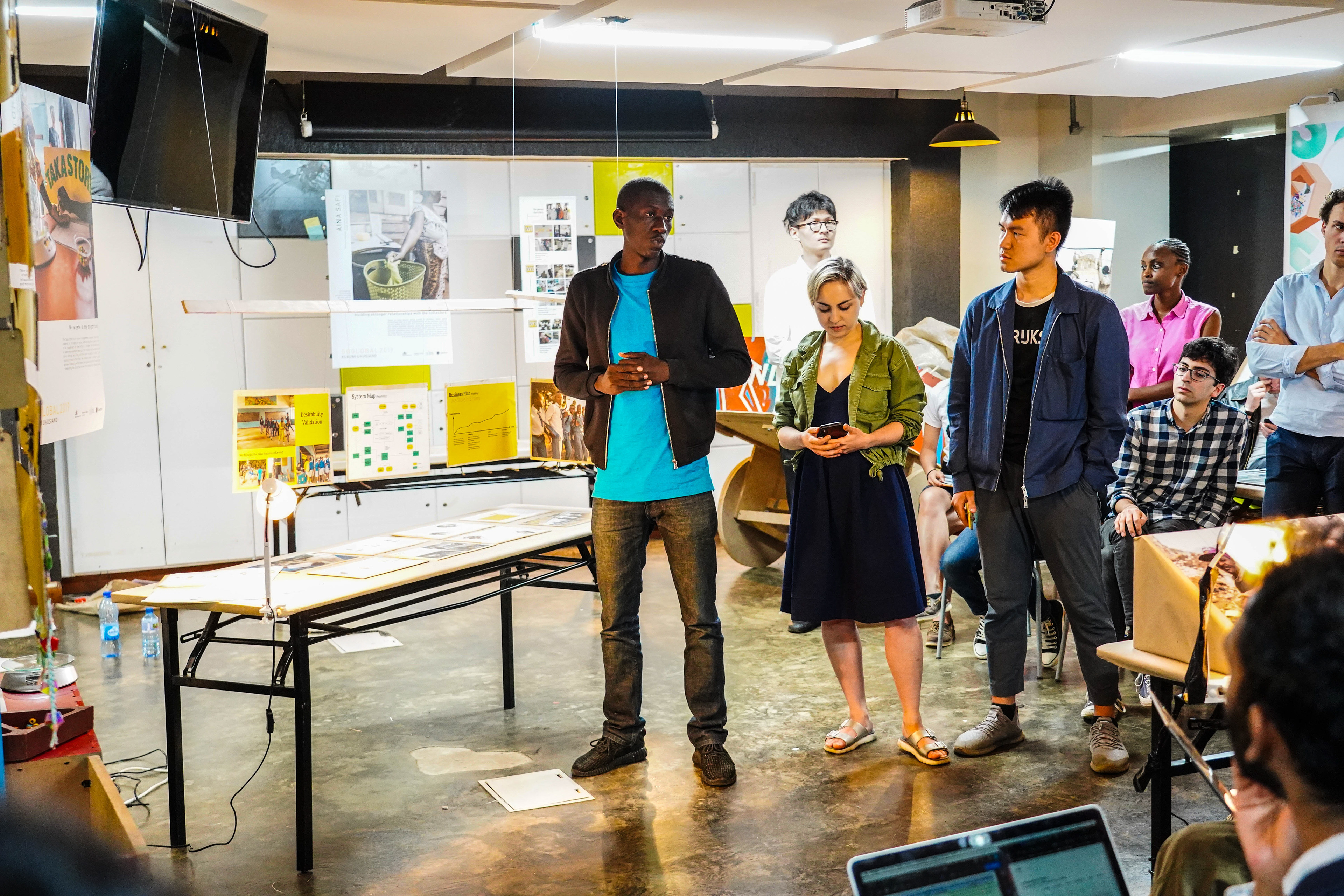
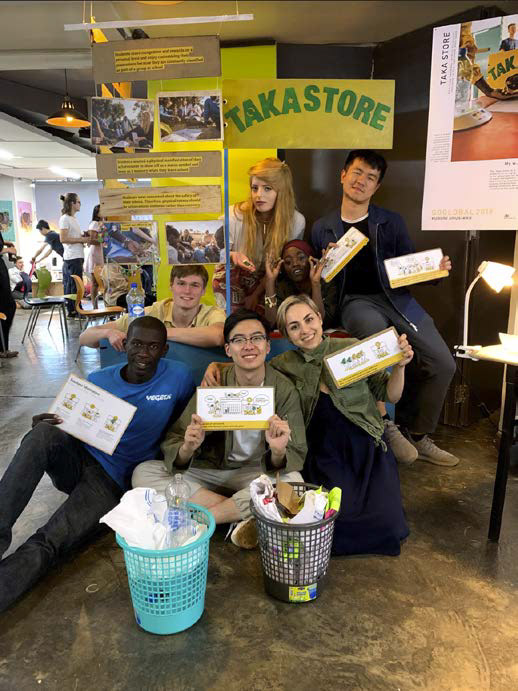
People we've talked to